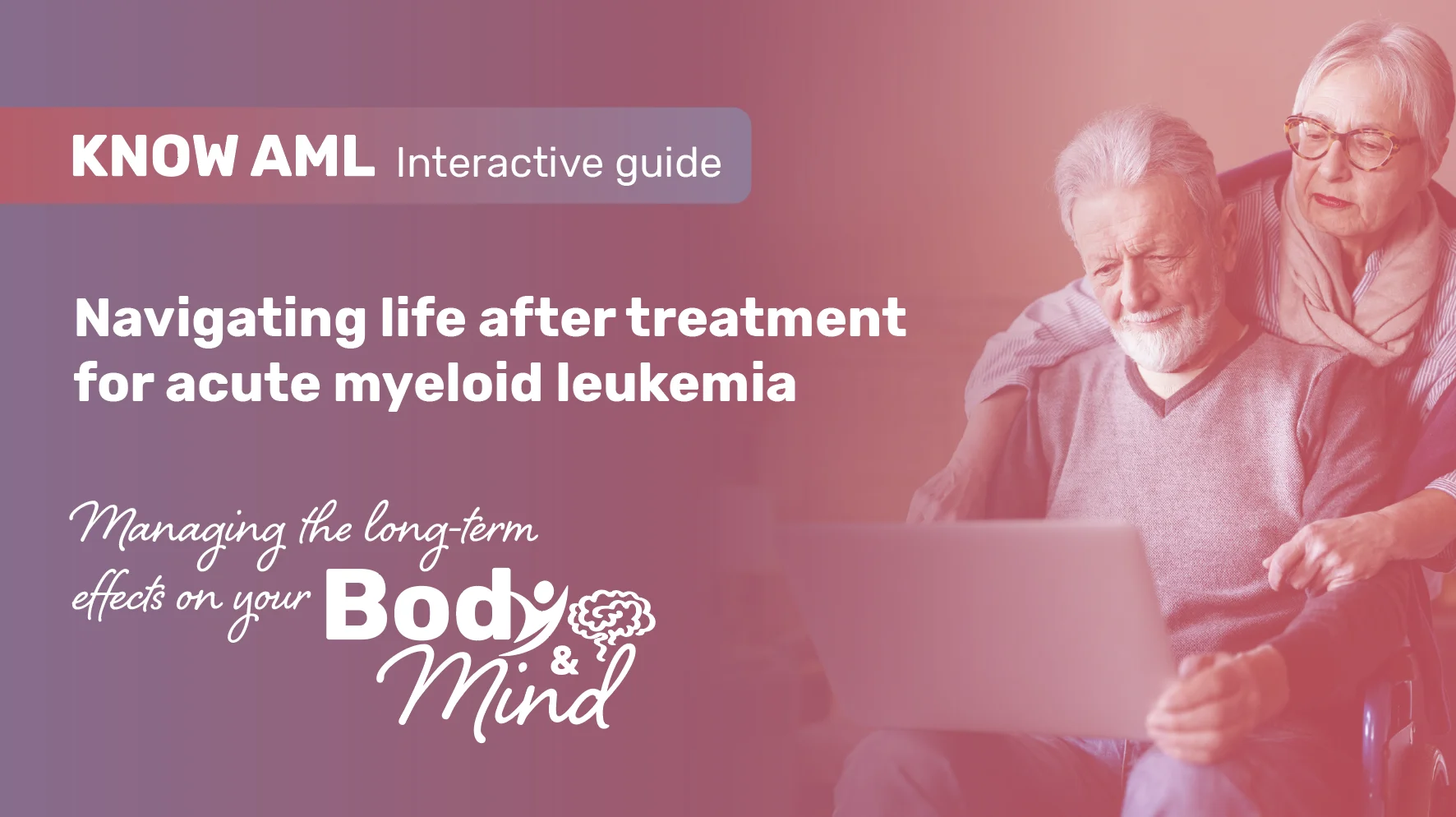The Know AML website uses a third-party service provided by Google that dynamically translates web content. Translations are machine generated, so may not be an exact or complete translation, and Know AML cannot guarantee the accuracy of translated content. Know AML and its employees will not be liable for any direct, indirect, or consequential damages (even if foreseeable) resulting from use of the Google Translate feature. For further support with Google Translate, visit Google Translate Help. The interviews webpage also uses YouTube, where subtitles and translations are generated automatically by AI; please be advised to exercise caution when precise interpretation is required. For further support with YouTube, visit YouTube Help.
Read through our guide designed to help you understand the long-term effects of acute myeloid leukemia treatment on the body and mind, provide ways to cope, and help improve your overall quality of life.
AML World Awareness Day
There is a need for education and support around the long-term physical and psychological effects of treatment for acute myeloid leukemia (AML). Many people are unaware of:
- The impact of acute myeloid leukemia treatment on a patient’s long-term physical and psychological health
- What management and supportive medical care is available for the long-term biological effects of acute myeloid leukemia
- Strategies to support patients with the long-term physical and psychological effects of acute myeloid leukemia treatment
- Where patients, caregivers, and families can find further information, support, and practical advice
AML World Awareness Day on April 21, 2025, aims to educate the whole acute myeloid leukemia community and will offer accessible resources to address these gaps. We will be asking individuals from around the world to come together to join us and help raise awareness of acute myeloid leukemia.
Here is one way you can get involved with AML World Awareness Day:
Step 1: Take part in the interactive guide and download the PDF
Step 2: Spread the word and recommend the interactive guide and downloadable PDF to others
If you're short on time, you can still show your support by sharing our AML World Awareness Day 2025 graphics and resources on social media using the hashtag #KnowAML.
Please complete our survey
If you are taking part in AML World Awareness Day 2025, we would like to hear from you.
Please spare no more than 2 minutes of your time to complete our surveys by clicking on the links below.
Pre-AML World Awareness Day 2025 survey
Post-AML World Awareness Day 2025 survey
By completing these surveys, you will be helping us measure the effectiveness of our campaign so we can develop and improve them going forward. Thank you.


